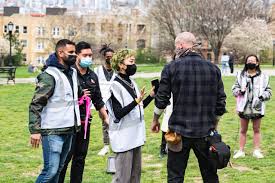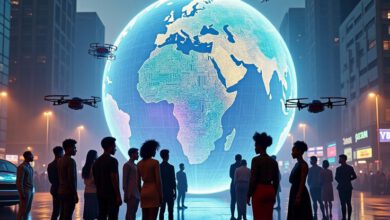Protecting Civic Tech in Politically Tense Spaces

Civic technology promised a fresh dawn in Zimbabwe until it met a surveillance wall. Protesters used hashtags like #ThisFlag to hold politicians responsible and monitor elections.
But as visibility increased, so did the threat. During the 2020 protests, the authorities confiscated phones, requested passwords, and shut down WhatsApp and Facebook for several days.
When civic technologies that educate citizens become targets, one issue arises: how do we protect the tools that are supposed to safeguard us?
The Influence of Civic Technology
Civic technology refers to the use of technology to enhance the relationship between people and government, improve public participation, and address civic challenges. These tools enable citizens to demand answers, track promises, and throw light on areas the government wishes to keep hidden.
For instance, in Ghana, technologies such as the citizen app enable citizens to report deficiencies in government straight from their phones. The same thing with the Mali Monelu app helps voter reports, hence ensuring fairer elections.
Additionally, Morocco is the top African country with an online usage rating of over 92% in 2025. meaning that the number of individuals using the internet is rapidly increasing in many African countries, enabling citizens to use civic tools and exercise their rights online.
As a result, someone in a small town has easy access to reveal the misappropriation of community finance and also verify poll results without fear.

How can we protect civic tech in a politically tense space?
Amidst the escalating threats, an undercover force is emerging, comprised of digital rights activists, civic technologists, and community campaigners who refuse to allow civic technology to be eradicated.
Following internet restrictions imposed during uprisings in Senegal, local civil society organizations established emergency digital security centers to teach young developers and activists how to secure their tools and identities. These training programs provided encryption assistance, legal help, and even mental health support because activism in tense environments requires more than just bravery.
The Media Foundation for West Africa in Ghana is working to promote freedom of expression, access to information, internet freedom, and legal support to civic tech creators under surveillance and pushing for stronger laws that protect them.
And also, the tech communities are not staying silent in politically tense times, from controlling platforms using encrypted servers and creating backups that are difficult to remove to helping communities that are affected.
Furthermore, across the continent, regional partnerships are growing to strengthen this protection. Digital rights groups now gather regularly to discuss tools, encounters, and rescue plans when civic technology is attacked.
This means that protecting civic technology does not begin with authorities or philanthropists. It all starts with young, courageous, and determined people who want to keep the light shining.
Bottom line.
Civic technology is the people’s voice; restricting it undermines democracy. The campaign to protect it may not make headlines, but it is happening slowly yet effectively. Now is the time for African nations to stop viewing civic tech as a concern but rather as a means of communication.
What we need now is simple: protection, not retaliation for the platforms and the individuals who operate them.





